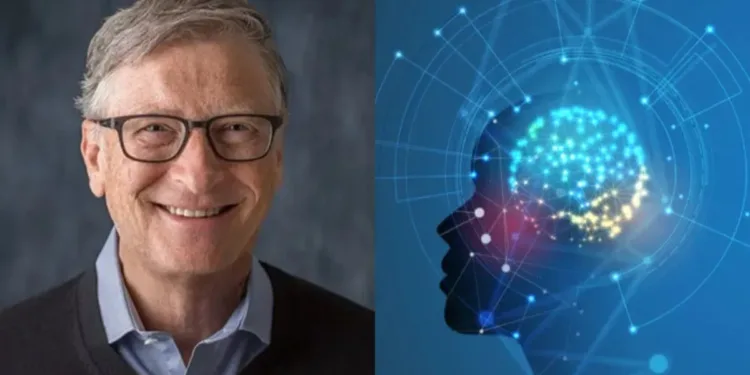In his recent year-end letter, Bill Gates underscored the impending acceleration of AI’s impact on society, asserting that the next 18 to 24 months will witness a substantial integration of AI into the daily lives of people in developed countries. Emphasising AI’s potential to drive discoveries at an unprecedented pace, Gates forecasts a monumental technology boom in the near future. While Gates’s focus centres on AI’s applications in developing regions, he highlights the broader implications for global progress.
Must Read: New York Times sues Microsoft and OpenAI for ‘Billion Dollars’ infringing copyrighted work
Gates, who actively serves on the Gates Foundation, underscores the foundation’s commitment to utilising AI to address pressing health issues that disproportionately affect impoverished populations, including AIDS, tuberculosis, and malaria. He underscores the transformative potential of AI across various sectors, foreseeing its practical implementation in the latter part of this decade.
Also Read: Bill Gates Envisions a 3-Day Work Week with the Rise of AI
The Microsoft co-founder highlights initiatives such as an AI-driven tool in Ghana combating antimicrobial resistance by providing tailored drug recommendations based on local clinical data. In Nairobi, an AI-based tutoring software, “Somanasi,” tailored to cultural contexts, aims to enhance personalised education. Gates also draws attention to projects in India, Pakistan, and Africa that utilise AI to address critical healthcare challenges, from reducing maternal mortality rates to assessing HIV risks through chatbots.
Must Read: Microsoft Unveils Copilot: AI Innovations & Potential Revenue Surge
Furthermore, Gates emphasises the importance of tailored AI solutions developed in specific countries, citing examples like a voice-powered mobile health app in Pakistan that aligns with prevalent communication practices. He underscores the necessity of customising AI products to suit the unique needs of diverse populations, drawing lessons from global health initiatives to promote equity in AI utilisation.
Must Read: Microsoft Phi-2: Small Language Model Outperforming Larger Counterparts
Gates predicts a swift adoption of AI in both developed and developing nations, foreseeing significant AI integration into the general population within 18 to 24 months in high-income countries like the United States. He anticipates a comparable level of AI use in African countries within three years, emphasising a narrower adoption gap compared to past technological innovations.
Gates’ insights emphasise the imminent AI-driven revolution poised to revolutionise industries, improve healthcare accessibility, and drive global progress, underscoring the importance of equitable AI deployment to address societal challenges worldwide.
Must Read: Apple to Soon Launch Generative AI Worth $50 Million: Negotiating With News Partnerships


















